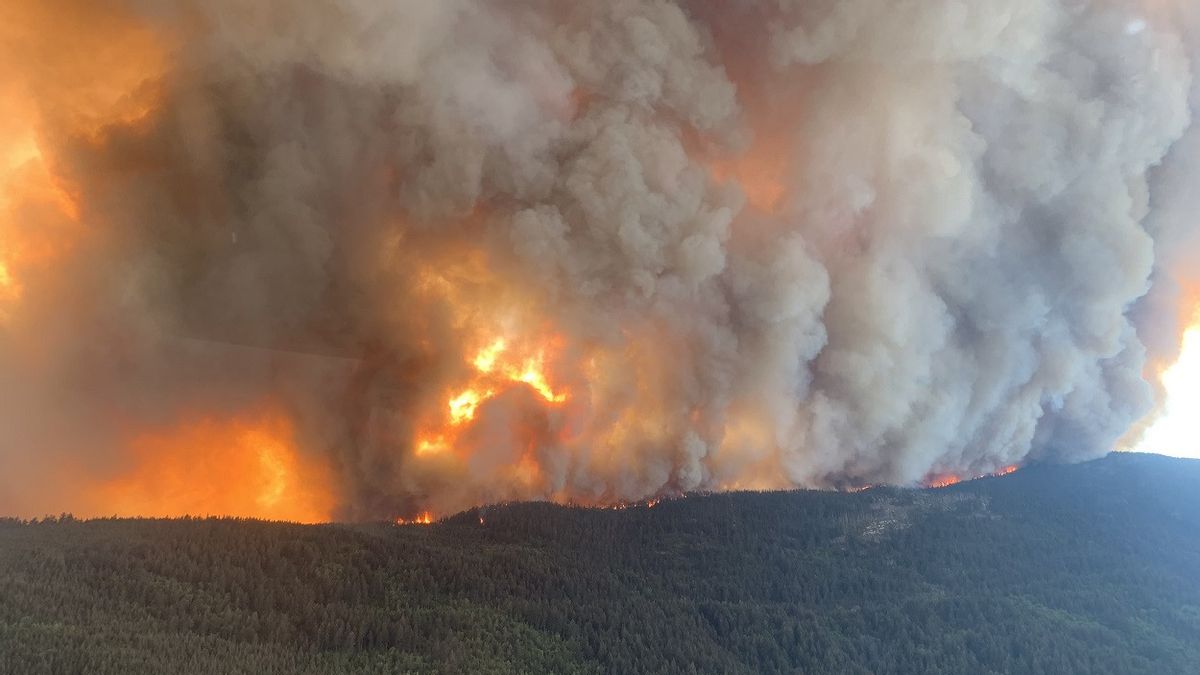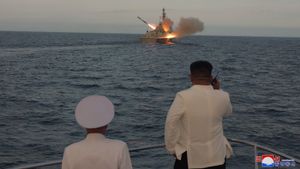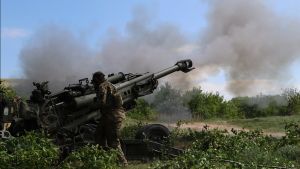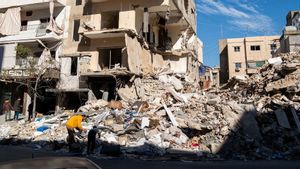JAKARTA - Canadian authorities plan to deploy the military in anticipation of a rapidly spreading wildfire in British Columbia, Prime Minister Justin Trudeau said Sunday, after 35,000 people in the province were displaced by the fires.
British Columbia declared a state of emergency, imposing a travel ban on unauthorized persons, to ease access for evacuees and firefighters, urging drone operators and others taking pictures of the fire.
In several cities in British Columbia, the air quality index (AQI), which measures major pollutants including particulate matter produced by fires, was above 350, the "dangerous" level, according to IQAir, a real-time air quality information platform, citing Reuters, August 21.
West Kelowna Fire Chief Jason Brolund said he saw hope after battling "epic" fires for the last four days, with conditions starting to improve.
"We finally feel like we're moving forward rather than backwards, and that's a great feeling," Brolund told the Canadian Broadcasting Corp.
In cooperation with our partners, the BC Wildfire Service continues to respond to the McDougall Creek wildfire (K52767) burning adjacent to West Kelowna. pic.twitter.com/aS4FH5BCF0
— BC Wildfire Service (@BCGovFireInfo) August 19, 2023
Separately, PM Trudeau said in a tweet, the federal government would offer support from the Canadian military "to assist with evacuation, staging," and other logistical tasks in response to requests from the government of British Columbia.
"We have received and approved British Columbia's request for federal assistance. We are deploying the Canadian military and providing resources to assist with evacuation, staging and other logistical tasks. We will continue to be here with any support needed," PM Trudeau wrote in Twitter.
Forest fires are not uncommon in Canada. But the spread of the blazes and the resulting disruption meant that this time the fires were judged to be the worst, with some experts blaming climate change.
Other fires, exacerbated by severe drought, have been reported near the US border and in the US Pacific Northwest.
Just across the border in Washington state, firefighters are battling two major blazes, the Gray Fire and the Oregon Road Fire, which have scorched more than 20,000 acres of forest and destroyed more than 100 buildings.
Additionally, Canadian officials are urging residents in the evacuation order zone to leave immediately for their lives.
اقرأ أيضا:
While officials have not given an estimate of the number of buildings destroyed, videos and photos on social media show destroyed buildings and vehicles, and large fires engulfing trees.
The fires have exhausted local resources and attracted federal government assistance as well as aid from 13 countries. At least four firefighters were killed.
About 140,000 square km (54,054 square miles) of land, roughly the size of New York State, was scorched with smog stretching all the way to the US East Coast.
Government officials project the fire season could continue into the fall, due to widespread drought-like conditions.
The English, Chinese, Japanese, Arabic, and French versions are automatically generated by the AI. So there may still be inaccuracies in translating, please always see Indonesian as our main language. (system supported by DigitalSiber.id)


















